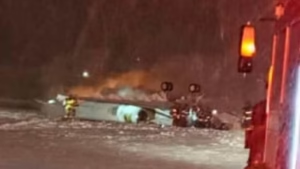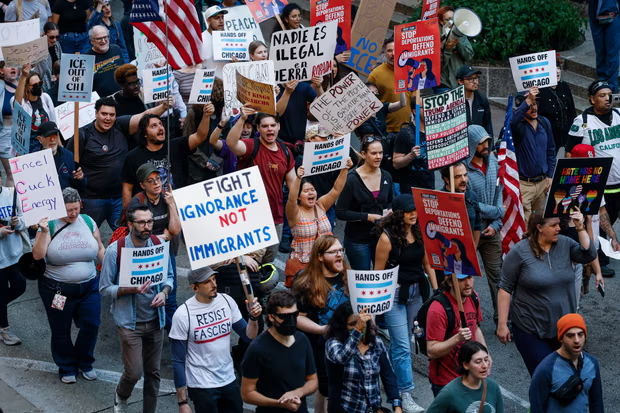A federal judge will not immediately block President Donald Trump from deploying National Guard troops in Illinois, following a lawsuit filed by the state on Monday. Troops from Texas could arrive in Chicago as early as Tuesday or Wednesday, and Trump is also seeking to federalize the Illinois National Guard. A similar effort to send troops to Portland, Oregon, was blocked by a judge.
Illinois filed the lawsuit after Trump ordered National Guard troops into the state against the wishes of Governor JB Pritzker. The Illinois Attorney General, Kwame Raoul, asked the court to prevent the president from calling up the state guard or sending in troops from other states “immediately and permanently.” The lawsuit said that Americans “should not live under the threat of occupation by the United States military” simply because state or city leadership disagrees with the president.
Trump has repeatedly targeted Democratic-led cities, sending federal forces to suppress protests and support immigration enforcement. Illinois officials argue that deploying troops without state consent infringes on local sovereignty and could worsen unrest. Raoul warned that such actions “harm community relations, increase mistrust of police, depress business activities, and reduce tax revenue.”
Governor Pritzker said the Trump administration did not consult state leaders before attempting to federalize the Illinois National Guard or send troops from other states. He called the planned operation “Trump’s invasion,” adding that federal agents and outside troops threaten Illinois residents against their will.
A Trump-appointed judge in Oregon blocked troop deployments to Portland, while Governor Gavin Newsom of California is fighting a similar effort to send troops from his state. Texas Governor Greg Abbott, a Republican, has approved sending troops to both Portland and Chicago.
Trump adviser Stephen Miller criticized the court ruling, calling it an “egregious violation of constitutional order” and claiming that judges are trying to undermine the 2024 election results.
Chicago Mayor Brandon Johnson issued an executive order preventing federal immigration agents from using city property for operations, following reports that public school lots and city-owned spaces were being used as staging areas. Johnson said the federal government was violating residents’ rights and abusing authority. “We will not stand for ICE agents detaining elected officials, tear-gassing protestors and children, or harming Chicago police and residents,” he said.
White House Press Secretary Karoline Leavitt defended the deployment at a press briefing, arguing that cities like Chicago are refusing help from the president because they dislike him. She said the troops are meant to make cities safer and assist local leaders who have struggled to manage security.
The legal and political battle over troop deployments highlights tensions between federal authority and state sovereignty. As the National Guard moves into Illinois, residents, city officials, and state leaders are preparing for protests and potential legal challenges that could shape how the federal government interacts with local governments in future crises.







